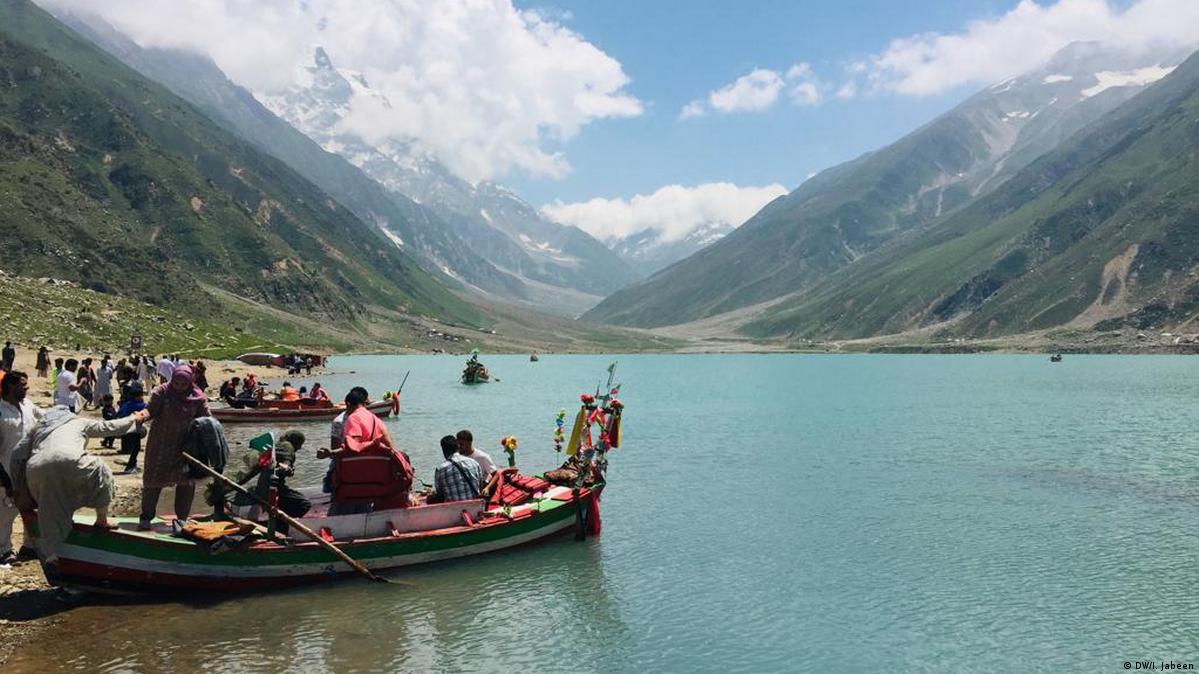
In recent years, Pakistan has faced the brunt of climate change with increasing frequency of extreme weather events, glacial melt, and rising temperatures. As one of the most climate-vulnerable countries in the world, Pakistan’s need for sustainable development strategies is urgent. The Special Investment Facilitation Council (SIFC) has recognized this pressing need and launched the Green Tourism Initiative, a transformative approach to harnessing tourism for environmental conservation and economic growth.
The Climate Challenge in Pakistan
Pakistan’s geographic diversity, from the towering Himalayas to the sprawling deserts and vibrant coastline, makes it particularly susceptible to the impacts of climate change. According to the Global Climate Risk Index 2021, Pakistan is ranked among the top ten countries most affected by climate change from 2000 to 2019. The country has experienced severe floods, heatwaves, and droughts, which have not only caused significant loss of life and property but also disrupted livelihoods and economic stability.
Key Climate Vulnerabilities
Pakistan’s geographic diversity, from the towering Himalayas to the sprawling deserts and vibrant coastline, makes it particularly susceptible to the impacts of climate change. One of the most pressing issues is glacial melt and water scarcity; Pakistan heavily relies on its glaciers for freshwater, and the rapid melting of glaciers in the Himalayas and Karakoram ranges due to rising temperatures threatens the water supply for millions. The country faces an increased frequency and intensity of extreme weather events such as floods and heatwaves, which have devastating effects on agriculture, infrastructure, and public health. The impact on agriculture is significant, as climate change alters rainfall patterns and exacerbates extreme weather conditions, leading to reduced crop yields and raising food security concerns. Furthermore, Pakistan’s diverse ecosystems are at risk due to climate change-induced biodiversity loss, with changing climate patterns threatening wildlife and plant species. These challenges underscore the urgent need for sustainable development strategies to mitigate the effects of climate change in Pakistan.
The Green Tourism Initiative: A Sustainable Path Forward
Recognizing the potential of sustainable tourism to address these challenges, SIFC has launched the Green Tourism Initiative. This initiative aims to promote eco-friendly tourism practices that protect natural resources, empower local communities, and create economic opportunities.
Objectives of the Green Tourism Initiative
The Green Tourism Initiative emphasizes several key objectives to foster sustainable development. Environmental conservation is a primary focus, with efforts to implement sustainable practices that preserve natural landscapes and biodiversity. In tandem, economic development is targeted by boosting local economies through the creation of tourism-related jobs and businesses. A crucial aspect of the initiative is community engagement, which involves local communities in tourism planning and development to ensure that the benefits are equitably distributed. Additionally, cultural preservation is promoted by encouraging responsible tourism that highlights and protects cultural heritage and traditions. Through these integrated approaches, the initiative aims to achieve a harmonious balance between environmental sustainability, economic growth, and social equity.
Key Components of the Initiative
Eco-Friendly Infrastructure
Investing in eco-friendly infrastructure is a cornerstone of the Green Tourism Initiative. This includes the development of sustainable accommodations, renewable energy sources, waste management systems, and water conservation technologies. Eco-lodges and green hotels designed to minimize environmental impact are being promoted.
Protected Areas and Ecotourism
Pakistan is home to numerous national parks and protected areas, such as the Gilgit Baltistan, Khunjerab National Park, and the Margalla Hills National Park. The initiative focuses on enhancing these regions as eco-tourism destinations, ensuring that tourism activities do not harm the environment. Activities like wildlife safaris, bird watching, and nature trails are encouraged.
Community-Based Tourism
Empowering local communities is crucial for sustainable tourism. The initiative supports community-based tourism projects where locals manage and benefit from tourism enterprises. This approach not only provides economic benefits but also fosters cultural exchange and preservation. Training programs in hospitality, tour guiding, and sustainable practices are provided to community members.
Green Certifications and Standards
To ensure adherence to sustainable practices, the initiative promotes green certifications and standards for tourism businesses. Hotels, tour operators, and other tourism-related enterprises are encouraged to obtain certifications such as Green Key or EarthCheck. These certifications help maintain high environmental standards and attract eco-conscious tourists.
Awareness and Education
Educating tourists and locals about the importance of sustainable tourism is a critical component of the initiative. Awareness campaigns, workshops, and educational programs are conducted to promote responsible behavior among tourists and to sensitize communities about the benefits of green tourism.
Economic and Environmental Benefits
The Green Tourism Initiative has the potential to significantly boost Pakistan’s economy. According to the World Travel & Tourism Council (WTTC), the travel and tourism sector contributed 5.7% to Pakistan’s GDP in 2019. By adopting sustainable tourism practices, this contribution can increase, providing jobs and income for local communities. Sustainable tourism can create employment opportunities in hospitality, guiding, transport, and craft industries. Moreover, eco-tourism attracts international tourists who are willing to spend on unique, responsible travel experiences, thereby generating additional revenue. Green certifications and standards further enhance this potential by attracting foreign investment in eco-friendly tourism infrastructure.
In terms of environmental impact, sustainable tourism practices play a crucial role in the conservation of biodiversity and natural landscapes. The promotion of renewable energy and efficient resource use in tourism facilities helps reduce carbon emissions, contributing to a smaller carbon footprint. Effective waste management systems implemented in tourist areas also reduce pollution and help maintain pristine environments. These combined efforts ensure that tourism development aligns with environmental sustainability, benefiting both the economy and the natural ecosystem.
Challenges and the Way Forward
While the Green Tourism Initiative holds immense promise for Pakistan’s sustainable development, several challenges need to be addressed for its successful implementation. Firstly, infrastructure development poses a significant hurdle, particularly in remote and rural areas where eco-friendly infrastructure requires substantial investment and careful planning to ensure minimal environmental impact.
Secondly, ensuring active participation and buy-in from local communities is essential but can be challenging. Engaging communities in tourism planning and development processes is crucial for sustainable outcomes, but it requires effective communication, capacity building, and addressing community concerns and needs.
Thirdly, a robust regulatory framework is necessary to enforce sustainable tourism practices and prevent environmental degradation. Establishing and implementing regulations that promote responsible tourism, while balancing economic interests, is vital for long-term sustainability.
Lastly, building climate resilience is imperative. Continuous efforts are needed to make tourism infrastructure and activities resilient to climate change impacts such as extreme weather events. Adaptation measures should be integrated into tourism planning to ensure the sector can withstand environmental challenges.
Addressing these challenges requires collaboration between government agencies, local communities, private sector stakeholders, and civil society organizations to ensure that the Green Tourism Initiative achieves its goals of sustainability, economic growth, and environmental conservation.
SIFC’s Green Tourism Initiative is a promising arena for addressing Pakistan’s climate vulnerability while fostering economic growth and environmental conservation. By focusing on sustainable practices, community engagement, and environmental stewardship, this initiative can transform Pakistan’s tourism sector into a model of green tourism. As the country navigates the challenges of climate change, the Green Tourism Initiative stands as a beacon of hope for a sustainable and prosperous future.



















Leave a Reply